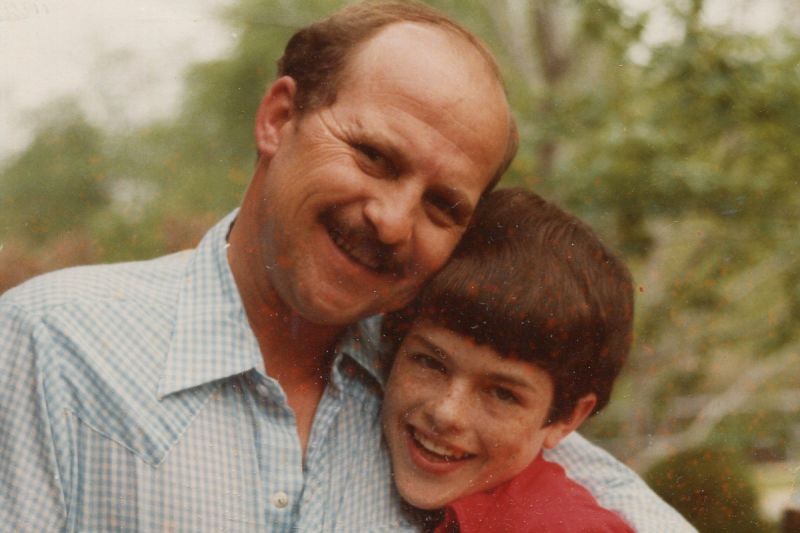Domestic vs. International Adoption
5 Factors to Consider for Your Family

One of the first steps in your adoption journey may be to choose domestic vs. international adoption. And when it comes to that choice, there are five major differences you need to understand:
- Cost
- Requirements
- Wait Times
- Medical Information
- Laws
Ultimately, each family will have to make the best decision for their situation—every family is a little different.
So if you’re wondering, “What is the difference between domestic and international adoption?” you should know that our professionals at American Adoptions are happy to answer your questions about your adoption options.
Or call 1-800-ADOPTION 24/7.
If you're a birth mom wondering if choosing adoption is right for you, check out some of our online resources for placing your child for adoption. You can also connect with a professional today.
The difference in the cost of international adoption vs. domestic adoption is a subject that many people don’t understand. In fact, adoption costs as a whole, and the reasons they are necessary, is something that most don’t have a good grasp on. When it comes to international vs. domestic adoption, total costs can be similar, typically costing tens of thousands of dollars. But both processes also have their own unique costs. For example: Families adopting domestically should be prepared to travel to the birth mother’s location for the birth of the baby and stay until the baby is released from the hospital. If the baby is born outside of the adoptive family’s state, the family must stay until ICPC approval has been granted, which usually takes 7 to 10 business days. This guide further compares the costs of adoption in the U.S. vs. international adoption. Or, read the following to learn more about how much it costs to adopt a child with American Adoptions. If you’re feeling overwhelmed about cost (many families do!), you may want to research the many available ways to finance your adoption.1. Cost
The requirements for adoption are different depending on the type of adoption, the agency you work with and the place you are adopting from. When you adopt domestically, you must meet the requirements of the state and the agency. One example of this could be meeting minimum age requirements. International adoption is typically more stringent. Some countries have marriage requirements and others have higher age limits. Unfortunately, many countries still do not allow LGBTQ couples to adopt. Is it easier to adopt internationally or domestically? The difficulty of meeting requirements will depend on your unique situation. Generally speaking, you will have a greater chance of facing more demanding requirements when adopting from a different country.2. Domestic Adoption Requirements vs. International
The time it takes for a family to complete a domestic adoption vs. international adoption depends on many factors. For families adopting domestically, the two most critical factors are: The more open a family is to certain situations (like different races, medical histories, and substance uses), the more exposure their adoption profile will receive and the less time they will typically wait. But this is also dependent on your agency’s advertising. With American Adoptions, your profile will reach more potential birth parents than it would if you joined 25 other adoption professionals at the same time. That’s why our wait time is an average of 12 months. The wait times for international adoptions also vary and depend on a family’s adoption plan, as well as country-specific issues. For example, many U.S. families have adopted children from China. Historically the U.S. and China have had a good relationship when it comes to adoption, but the beginning of the global COVID-19 pandemic halted adoptions, and in 2020-2021 the number of U.S. adoptions from China dropped from hundreds to zero, and many adoptions fell through. There are also countries with volatile political climates that can drastically impact families and children. Ethiopia abruptly closed the country to all foreign adoptions recently, disrupting hundreds of adoption plans. Something similar happened when Russia decided to halt all U.S. families from adopting Russian children. These changes can happen suddenly and leave families in limbo, making international adoption wait times longer and less predictable in many countries. Families considering international adoption should carefully research wait times and current U.S. relationships with the countries they are considering adopting from to ensure they will have a stable adoption process. While wait time is an important factor to consider, it should not necessarily make or break your decision of domestic vs. international adoption. It all comes down to your specific situation and priorities. The age of children available for adoption also depends greatly on the type of adoption families pursue: According to the latest research by the National Council for Adoption, the number of private domestic agency adoptions has risen steadily over the years, from 14,549 children in the early 1980s to a peak of 25,737 domestic infant adoptions completed in 2019, before falling to 19,658 during 2020 when the COVID-19 pandemic began (the most recent year statistics are available). While domestic adoption has been on the rise, international adoption has declined significantly over the past several years, with just 1,622 adoptions in 2020 and 2,971 adoptions in 2019, down from 4,099 in 2018, 4,714 in 2017 and 5,370 in 2016. In 2010, when the international adoptions totaled 11,058 the countries with the most U.S. adoptions were China (3,401), Ethiopia (2,513) and Russia (1,082). In 2013, China declined to 2,306, Ethiopia to 993 and Russia to 250. Since then, as previously noted, Ethiopia, China, and Russia have closed their borders to U.S. adoptions. There are many reasons for this — most of them on the logistical and political side of the international adoption process. This does not reflect a decreasing need for adoptive families to provide loving homes to waiting children. There are still millions of children in the world who need to come home to a family through adoption; the process of doing so is just more complicated today than it was during the peak of international adoptions in the mid-2000s. Domestic vs international adoption statistics, as you can see, show types of adoption on two different paths. While these numbers are helpful in understanding the big picture, they don’t have to impact your decision. Your family is unique, and you can choose the type of adoption that will be best for you.3. Wait Times
Waiting Children
One of the biggest differences when comparing domestic adoption and international adoption is the availability of the medical and social history of the child and their birth parents. Medical records of children adopted internationally are often minimal, if available at all. Information regarding the social history of the child's birth parents — such as family medical history or any possible exposure to drugs or alcohol while the child was in the womb — is also often unavailable, and the effects of such exposure are often unrecognized until after the child is placed with a family. Finally, those adopting an older child internationally should also be prepared for a long road toward healing. Children who experience neglect, abuse and trauma at a young age can develop attachment disorders and other challenging behaviors. What these children need most is safe, loving attachment. There are resources that can help parents on this journey. But make no mistake about it: this is rarely easy. On the other hand, families adopting domestically are usually provided the medical records of the child and the social history of the birth parents pertaining to the child. Beyond this, the majority of domestic infant adoptions are semi-open, which means adoptive families and birth parents have the chance to maintain ongoing communication. This has been shown to benefit everyone involved in the process, especially the child. When it comes to international adoption, an open or semi-open relationship is nearly impossible, as the family often knows little to nothing about the birth parents. At American Adoptions, adoptive families are free to choose which circumstances they are comfortable accepting in their child’s medical and social history. For example, if the family is not comfortable adopting a child whose birth parents have a history of depression, or who may have been exposed to alcohol in the womb, they will not be considered for those situations.4. Medical Background Information
Domestic adoption and international adoption also have their own unique legal concerns. Hopeful parents adopting internationally should fully research the adoption process required by each country, as each has its own set of legal mandates that must be met before the adoption is finalized. This can make international adoption more complicated to complete. Not only are finalizing the adoption according to U.S. law, but also international laws of the country of origin, not to mention the additional visa, immigration and citizenship processes. One very large legal concern in domestic adoption is the myth that the child's biological parents may come back years later and take the child back. Many adoptive families believe that international adoptions are "safer," because there is routinely no contact with the birth parents in international adoptions prior to and after the completion of the adoption. However, the fact is that once an adoption is finalized by the U.S. courts, the adoptive family is recognized as the child's family by law. Although adoption laws vary from state to state, the laws remain very clear. Despite stories in a few high-profile cases, post-adoption revocations are extremely rare and are usually a result of unsound legal practices.5. Legal Concerns
Weighing the Options
If you are debating between domestic vs. international adoption, there is a wealth of information across the Web. We recommend you do plenty of research and investigate multiple private domestic adoption agencies and international adoption agencies so that you make the best choice for your family.
Here are several prominent pros and cons to consider.
International Adoption vs. Domestic Adoption Pros and Cons
- Pro: Domestic adoption gives you the opportunity to adopt a newborn
- Con: The cost associated with domestic adoption can be expensive
- Pro: International adoption provides a loving family for a child who desperately needs a home
- Con: International adoption can be costly and unpredictable
- Pro: Domestic adoption creates the opportunity for open and semi-open adoption
- Con: Open adoption is rarely possible in international adoption
These are only a few things to consider. Take your time making this important choice.
To learn more about private domestic adoption with American Adoptions, check out what separates our agency from others.
To learn more about international adoptions, you can reach out to an international adoption agency to learn more about their services.
Disclaimer
Information available through these links is the sole property of the companies and organizations listed therein. American Adoptions provides this information as a courtesy and is in no way responsible for its content or accuracy.

